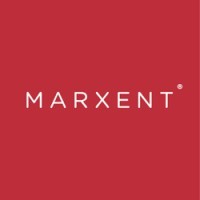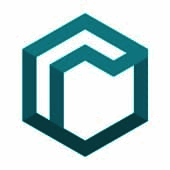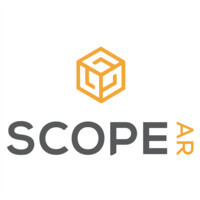Description

Marxent Labs

rooom

Scope AR
Comprehensive Overview: Marxent Labs vs rooom vs Scope AR
Marxent Labs
a) Primary Functions and Target Markets
Marxent Labs specializes in creating 3D visualization and augmented reality (AR) solutions primarily for the retail and manufacturing sectors. They are well-known for their platform that allows users to design, visualize, and configure complex home products like furniture and kitchens in 3D. Their primary product is the 3D Cloud by Marxent, which enables retailers and manufacturers to provide interactive and personalized shopping experiences through configurable 3D and AR applications.
b) Market Share and User Base
Marxent has established itself as a leader in 3D and AR technology for home furnishings in North America and is expanding globally. While exact market share percentages may not be publicly divulged, they have partnered with major retailers such as Lowe’s, Macy’s, and Ashley Furniture, suggesting a significant user base in the home furnishing sector.
c) Key Differentiating Factors
One of the key differentiators for Marxent is its robust enterprise-grade 3D visualization platform that seamlessly integrates with existing retail systems. This provides a scalable solution for large retailers. Additionally, their focus on a cloud-based ecosystem allows for easy updates and maintenance, leveraging the latest in AR and 3D modeling technologies.
rooom
a) Primary Functions and Target Markets
rooom offers an all-in-one platform for creating, managing, and distributing 3D, augmented, and virtual reality experiences. They target a broad range of industries, including events, marketing, real estate, and education. The platform provides tools for virtual showrooms, product visualizations, and interactive events, catering to businesses looking to innovate in digital engagement.
b) Market Share and User Base
rooom is a global player but operates in a more niche market compared to Marxent, focusing on virtual events and general 3D experiences rather than specific retail applications. They have worked with clients such as Deutsche Telekom and Jean Paul Gaultier, suggesting a diverse user base across various industries.
c) Key Differentiating Factors
rooom stands out with its comprehensive platform that covers the full spectrum of 3D and virtual experiences. Its versatility in supporting various industries from events to real estate, along with easy-to-use creation and distribution tools, provides a competitive edge. They also emphasize a more consumer-friendly interface, making it accessible to a wider range of users without specialized knowledge in AR/VR technologies.
Scope AR
a) Primary Functions and Target Markets
Scope AR focuses on providing AR solutions for workforce training and remote assistance, targeting industries like manufacturing, aerospace, and field services. Their WorkLink platform enables enterprises to create and share AR content that assists workers in real-time, offering step-by-step visual instructions.
b) Market Share and User Base
Scope AR is a leading player in the AR workforce training space, with a market presence that includes partnerships with companies such as Lockheed Martin and Unilever. While it may not command the broad consumer recognition of players like Marxent in retail spaces, its enterprise focus has given it a strong foothold in training and remote support markets.
c) Key Differentiating Factors
Scope AR differentiates itself through its emphasis on practical applications of AR in workforce productivity and training. The strength of their solution lies in its ability to integrate AR into existing workflows, providing measurable improvements in task efficiency and error reduction. Additionally, Scope AR's partnerships with major corporations in complex, high-stakes industries underline its capability and reliability in delivering effective AR solutions for critical tasks.
Summary Comparison
- Target Markets: Marxent focuses on retail, rooom targets multiple sectors including events and real estate, while Scope AR is centered on industrial and workforce applications.
- Market Share: Marxent likely holds a significant share in the home retail 3D/AR visualization market, rooom caters to varied industries with a global but niche presence, whereas Scope AR has a notable position in industrial AR solutions.
- Differentiation: Marxent is noted for its cloud platform and retail system integration, rooom for its comprehensive 3D/AR platform versatility, and Scope AR for its practical AR applications in workforce training and productivity.
Contact Info

Year founded :
Not Available
Not Available
Not Available
Not Available
Not Available

Year founded :
Not Available
Not Available
Not Available
Not Available
Not Available

Year founded :
2010
+1 855-207-2673
Not Available
United States
http://www.linkedin.com/company/scopear
Feature Similarity Breakdown: Marxent Labs, rooom, Scope AR
To provide a feature similarity breakdown for Marxent Labs, rooom, and Scope AR, we can consider the general landscape of their features and functionalities typically present in the AR and 3D visualization space, as these companies offer solutions tailored to these technologies. However, please note that specific feature details could vary based on product updates and specific packages offered by each company. Here's a general overview:
a) Core Features in Common:
-
Augmented Reality (AR) Capabilities:
- All three companies offer AR solutions that allow users to overlay digital content in the real world, which is a fundamental feature for applications in various industries such as retail, manufacturing, and construction.
-
3D Visualization:
- They provide 3D modeling and visualization tools to create, view, and interact with 3D content. This is particularly important for design, training, and interactive product demonstrations.
-
Cross-Platform Support:
- Solutions that work across multiple platforms (e.g., mobile devices, tablets, desktop) to ensure accessibility and flexibility for users in different environments.
-
Collaboration Tools:
- Features that enable team collaboration, sharing of AR experiences, and interaction with 3D models in real-time, which are particularly useful in enterprise settings.
b) Comparison of User Interfaces:
-
Marxent Labs:
- Typically emphasizes a user-friendly and intuitive interface with drag-and-drop functionalities for easy manipulation of 3D content. Their focus is often on simplifying the process for retailers and easing integration into existing e-commerce platforms.
-
rooom:
- Known for a visually engaging interface that allows users to create immersive experiences. It often incorporates straightforward navigation features and customization options which appeal to marketers and event organizers.
-
Scope AR:
- Has a practical and functionality-driven interface that prioritizes usability for industrial applications, such as remote guidance through AR. Its design focuses on efficiency and clarity to facilitate complex procedures and training.
c) Unique Features:
-
Marxent Labs:
- 3D Cloud: A significant feature is their 3D Cloud platform which supports large-scale 3D content management and distribution. It is particularly suited for retail, allowing for a wide range of product configurations in AR.
-
rooom:
- Complete Virtual Event Solutions: Besides AR, rooom offers comprehensive virtual and hybrid event solutions, making it stand out in integrating 3D environments for fairs, conferences, and trade shows.
-
Scope AR:
- WorkLink: This platform is unique for its real-time remote assistance and advanced AR work instructions, particularly beneficial in technical support, maintenance, and training for industrial sectors.
These companies each cater to slightly different market needs, which is reflected in their specific feature sets and interfaces, despite sharing core capabilities in AR and 3D visualization technology.
Features

Not Available

Not Available

Not Available
Best Fit Use Cases: Marxent Labs, rooom, Scope AR
Marxent Labs, rooom, and Scope AR are companies that provide augmented reality (AR) and virtual reality (VR) solutions, each with strengths tailored to specific use cases and industry needs. Here's a breakdown of the best-fit use cases for each:
a) Marxent Labs:
- Best Fit for Businesses/Projects:
- Retail and E-commerce: Marxent Labs is particularly suited for businesses in retail and home decor, offering 3D product visualization and AR solutions. It helps retailers provide immersive shopping experiences, enhancing customer engagement and aiding in purchasing decisions.
- Furniture and Home Improvement: The company is known for its expertise in creating 3D room planners and VR experiences, making it ideal for furniture, kitchen, bath, and building supplies sectors.
- Industry Vertical Fit:
- Primarily focuses on larger retail enterprises and companies that require scalable and highly customizable 3D visualization solutions.
- Suitable for companies looking for a platform to integrate 3D and AR into their omnichannel strategies.
b) rooom:
- Preferred Scenarios:
- Event Management and Marketing: rooom specializes in creating immersive virtual events, conferences, trade shows, and exhibitions. Businesses looking for an innovative way to host virtual events would find rooom’s offerings very appealing.
- Comprehensive Digital Experiences: Companies seeking to enhance online presentations, product showcases, and interactive content, especially in marketing campaigns, can benefit from rooom's solutions.
- Industry Vertical Fit:
- Serves medium to large-sized enterprises looking for integrated platforms that combine AR, VR, and 3D experiences, especially useful in marketing, media, and event planning industries.
c) Scope AR:
- Consideration Scenarios:
- Industrial and Enterprise Training: Scope AR is best suited for industries requiring detailed step-by-step virtual training guides, particularly in fields like manufacturing, aerospace, automotive, and healthcare.
- Field Service and Maintenance: Its capabilities in providing remote assistance and AR-enhanced maintenance guides make it valuable for businesses that need to support field technicians and improve operational efficiency.
- Industry Vertical Fit:
- Targets companies ranging from medium to large sizes that need robust AR tools for workforce training, troubleshooting, and productivity enhancements in industrial settings.
- Ideal for firms emphasizing safety, precision, and efficiency.
d) Catering to Different Industries and Company Sizes:
- Marxent Labs: Primarily aligned with large-scale retail and home improvement sectors, providing significant value for enterprises looking for seamless integration between online and in-store experiences.
- rooom: Serves a broad range of industries, with a focus on marketing and events. It caters to companies of various sizes looking to leverage AR/VR for engaging customer experiences and brand storytelling.
- Scope AR: Best suited for industries with complex operational needs where AR can transform workforce training and field service processes, primarily targeting large organizations in industrial and technology sectors.
Each product offers distinct advantages across different industries and company scales, helping businesses leverage AR and VR technologies to meet their specific project goals.
Pricing

Pricing Not Available

Pricing Not Available

Pricing Not Available
Metrics History
Metrics History
Comparing teamSize across companies
Conclusion & Final Verdict: Marxent Labs vs rooom vs Scope AR
To provide a conclusion and final verdict on Marxent Labs, rooom, and Scope AR, it's essential to consider the value each product offers, the pros and cons associated with each, and specific recommendations for potential users.
a) Best Overall Value
Marxent Labs: Known for its 3D Cloud platform, Marxent Labs specializes in creating high-quality 3D visualizations and AR solutions primarily targeted at furniture and home goods retailers. The platform offers robust features for product configuration and room visualization, which can significantly enhance the customer shopping experience online or in-store.
rooom: This platform offers an all-in-one solution for 3D and augmented reality content creation, catering to a broad spectrum of industries including retail, real estate, and events. With features supporting virtual exhibitions, product showcases, and real estate tours, rooom provides versatile tools that can appeal to a wide audience.
Scope AR: Focused on industrial applications, Scope AR provides solutions that enhance worker training, remote assistance, and maintenance via augmented reality. With its WorkLink platform, it offers real-time AR overlays to simplify complex tasks, thus is highly valuable for organizations in manufacturing, aerospace, and field service.
Verdict: The best overall value largely depends on the user's industry and use case. For retail and real estate, rooom presents a diverse range of features that cater to multiple sectors. For specialized furniture retail visualization, Marxent Labs leads with tailored solutions. In the industrial sector, Scope AR stands out with its focus on operational efficiency through AR.
b) Pros and Cons
Marxent Labs
- Pros: Exceptional 3D visualization for furniture and home improvement, supports complex product configurations, enhances e-commerce and showroom experiences.
- Cons: Primarily targets a niche market, mainly useful for specific industries focused on furniture and decor.
rooom
- Pros: Versatile platform with applications across various industries, easy-to-use tools for creating 3D and AR content, ability to host virtual events and exhibitions.
- Cons: May have a steeper learning curve for inexperienced users, broad focus could mean less specialized support for niche industries.
Scope AR
- Pros: Strong focus on industrial applications, effective in boosting productivity and safety in work environments through AR-assisted training and maintenance.
- Cons: Limited to industries with operational and maintenance needs; not suitable for retail or real estate applications.
c) Specific Recommendations
-
Retailers and Real Estate Professionals: If your primary interest is in enhancing the online or in-store shopping experience with AR and 3D visualizations, consider rooom for its comprehensive features across multiple industries. For those in the furniture sector, Marxent Labs offers specialized, high-quality solutions.
-
Industrial Enterprises: Organizations seeking to improve operational efficiency through AR-enhanced training or remote assistance should opt for Scope AR. Its tailored solutions provide significant value in manufacturing, aerospace, and other similar fields.
-
General Considerations: Evaluate your specific industry needs and the technical expertise of your team. For broad applications and event management, rooom might offer the best balance of versatility and functionality. If specialization is crucial, lean toward Marxent Labs for retail or Scope AR for industrial needs.
Ultimately, the choice depends on the specific use cases and industry focus of the potential users, with each platform offering unique strengths catered to different market needs.